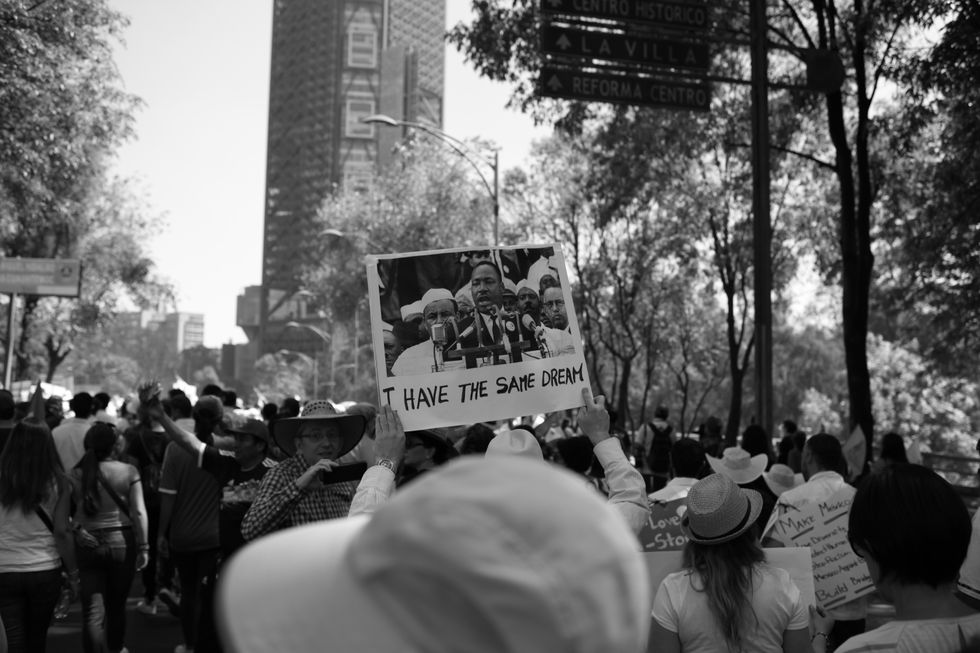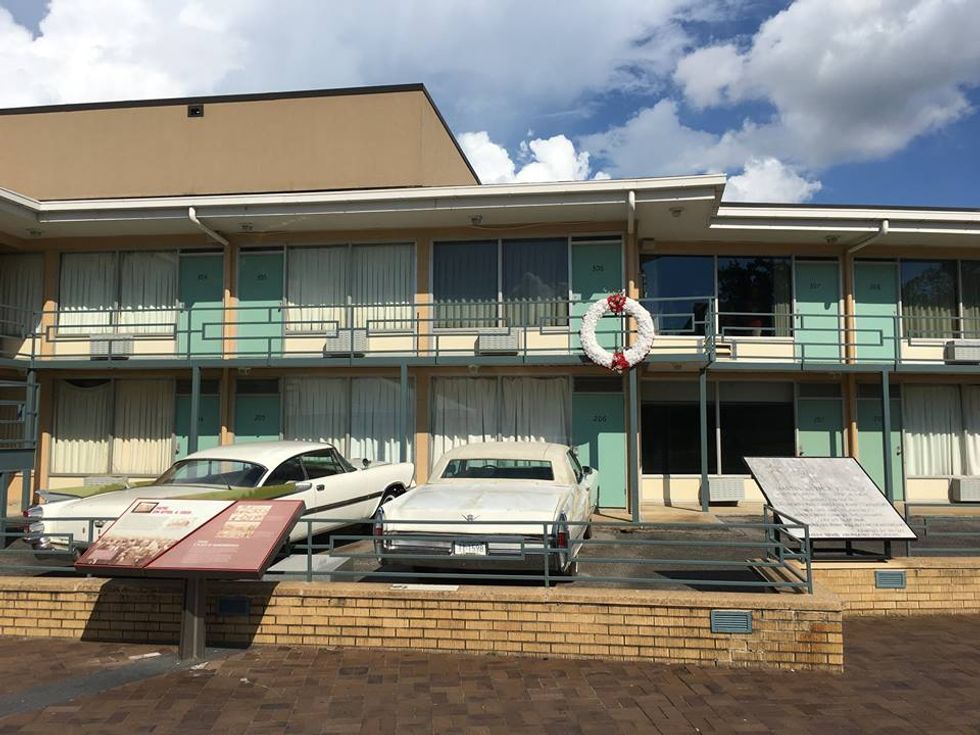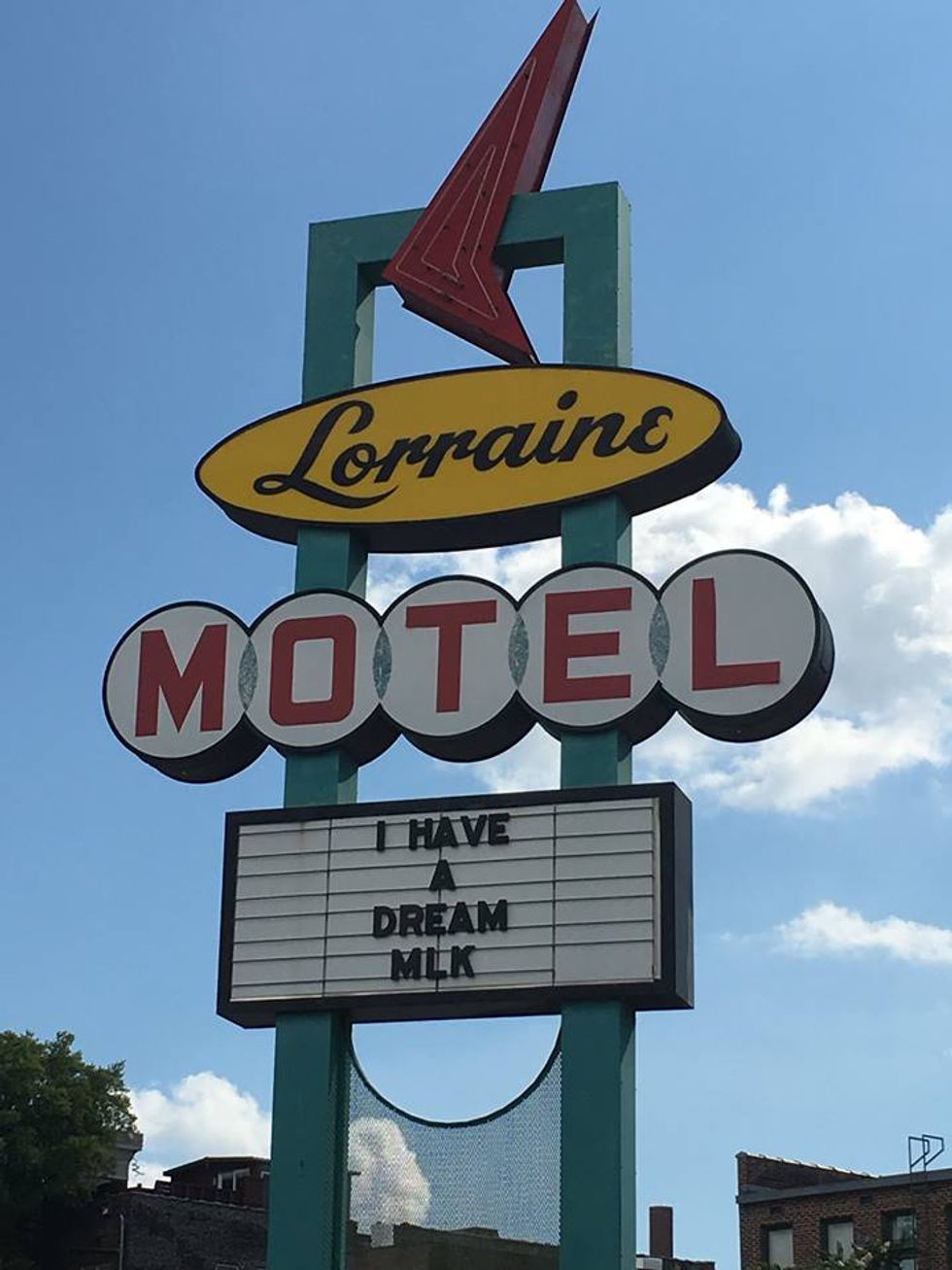April 4th, 2018 marks the 50th anniversary of Dr. Martin Luther King Jr.'s tragic assassination. Last summer, while on a musical adventure in Memphis, Tennessee, I decided to stop by the site of the assassination, the Lorraine Motel, to pay my respects.
I stopped out of morbid curiosity, and I expected to see a run-down motel, or perhaps no motel at all, as it could've been bulldozed down decades ago.
As I turned a street corner, I saw the motel in shocking condition. It looked like it hadn't aged a day, and I was back in 1968. Seeing where one of the most tragic events on American soil occurred was chilling.
A picture of Room 306 and the balcony where MLK Jr. was assassinated, now a part of the National Civil Rights Museum.
Standing under the famous motel's sign.
The famous motel's marquee.
After a brief visit to the Lorraine Motel site, I planned my trip back home to North Carolina. When I made it back home, I did some research about MLK Jr.'s time in Memphis.
The reason MLK Jr. was in Memphis was to support the protest black sanitation workers had started. The wages were extremely low, and working conditions were dangerous. Many of their full-time salaries were so low they still needed food stamps to survive.
I found out that only a day prior to his tragic demise he gave his "Mountaintop" speech in Memphis, one of the most inspirational, affective, and prophetic speeches he ever gave.
Here are a few of my favorite passages from the speech:
"It is no longer a choice between violence and nonviolence in this world; it's nonviolence or nonexistence. That is where we are today."
"Somewhere I read that the greatness of America is the right to protest for right. And so just as I say, we aren't going to let dogs or water hoses turn us around, we aren't going to let any injunction turn us around. We are going on."
"The question is not, 'If I stop to help this man in need, what will happen to me?' The question is, 'If I do not stop to help the sanitation workers, what will happen to them?"
I love that, no matter what, MLK Jr. knew violence was not the answer. He promoted working to change the system through nonviolent protests.
MLK Jr. knew that if they rioted and took the "by any means necessary" approach, the media and society at large would not take to their cause. It's admirable because even though he was nearly stabbed to death at a book signing ten years before, he maintained his nonviolence stance.
The FBI sent MLK Jr. a letter in 1964, threatening to release details about his alleged affairs unless he killed himself. Still, MLK Jr. stood his ground.
He knew radically changing the status quo would be threatening to many people and organizations. This is why the conclusion of his "Mountaintop" speech is so prophetic.
"Like anybody, I would like to live a long life. Longevity has its place. But I'm not concerned about that now. I just want to do God's will. And He's allowed me to go up to the mountain. And I've looked over. And I've seen the Promised Land. I may not get there with you. But I want you to know tonight, that we, as a people, will get to the promised land!"
Read Martin Luther King's final speech in its entirety here.

























